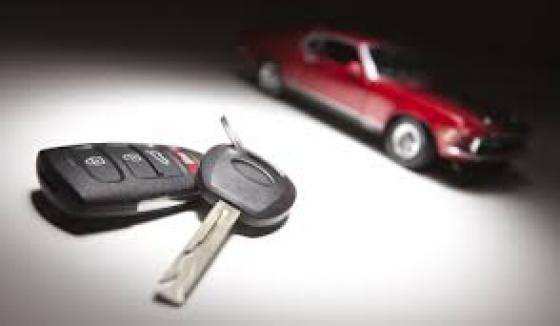Car and Company: what taxations are there in the income tax and turnover tax?
In The Netherlands, entrepreneurs can choose to register their car as part of their business, if the car is –partially- used for work. If you do this, it has consequences for your tax declarations. Read below what these consequences are and what you need to pay attention to concerning car and company.

1. Car and company: Income tax
In the Dutch income tax system, there are three ways in which the car can be regarded fiscally. Every option differs in the fiscal way the vehicle is considered.
a. Using a private car for business purposes
Are you mostly using your car privatly and sometimes use it for your business? Then you deduct a compensation for the expenses of these drives in the income tax. In The Dutch tax system you are allowed to budget €0,19 per kilometre to deduct from your profit. Make sure you register the drives you deduct in a solid administration. You must be able to hand over this to the tax authorities.
b. Using a company car less than 500 kilometres per year for private purposes
If you are able to prove that you use your business car for private drives for less than 500 kilometres per year, than you may fully count the expenses of the car as business costs. All costs that relate to the car then may be deducted. Also driving to and from work is deductable.
c. Using a company car for private purposes more than 500 kilometres a year
Do you (want to) use your company car privatly for more than 500 kilometres per year? Then you can also deduct the expenses of the car for the income tax. But in order to do so, the private use needs to be compensated fiscally. In Dutch this compensation is called ‘bijtelling’: 22% percent (2021) of the catalogue value of your car is added to your income to balance the private use. For cars that have no CO2 emission and the catalogue value is below €40.000,-, the addition to your income is only 12%.
Pay attention
- In 2019 the bijtelling on CO2 emission free cars was only 4%. In the coming years this percentage will increase step by step until –in 2026- it equals the percentage of cars that do emit CO2. In 2021 the bijtelling on an electric company car was 12% over the first 40.000 euros of the new value of the car, and 22% over the additional price. As of 2022, that will increase to 16% over the first 35.000 euros and 22% over the additional value.
- If you do not register the private kilometres you drive in a company car, ‘bijtelling’ must be added to the use of it. Although it demands some extra effort, fiscally it can be very profitable to keep detailed mileage records if you use the car privately less than 500 km.
- Are you (or your employees) driving a pick-up/delivery van and do you drive commercially many times a day? To avoid that your administration becomes too extensive, you can apply for a simplified registration.
- For driving instructors, a simplified registration of kilometres also aplies: if you give driving lessons, you only have to register your mileage in the beginning and the end of your workday.
2. Car and company: Turnover tax
If you use a car for business purposes, the VAT on costs concerning the car are deductable. An important difference from the income tax is that traffic to and from work are considered private in the turnover tax.
This is how you determine which part of your costs are deductible, when you use a car both commercial as private:
As an entrepreneur you are allowed to consider your car –even if you also use it privately- as business asset for the turnover tax. The costs for the car are deducable, but the private use leads to a VAT fee. There are two possibilities here:
a. Legal regulation
If you keep track of your mileage in both private as company drives, you can use this to determine which part of the overall use is private. This part is not deductable from the VAT. The fiscal handling of this rule is quite complex: First you deduct al VAT expenses en secondly you budget the part of private use as a fictive service over which you pay VAT.
As an alternative fort his somewhat extensive regulation, you may want to make use of the flat-rate regulation.
b. Flat-rate regulation
With this regulation the entrepreneur deducts al VAT on costs for the car. After this additional VAT (btw-bijtelling) of 2,7% of the catalogue value of the car (inclusive of VAT) is calculated. With the final declaration of VAT of the year you must add that 2,7 percent as private use.
Further reading
The Dutch Tax Authorities has basic online information on car and company: Read more about the Private use of a company car, or the other way around: Company use of a private car on the international website of the Dutch Government. More detailed information is mostly in Dutch. We are happy to help if you have any questions.